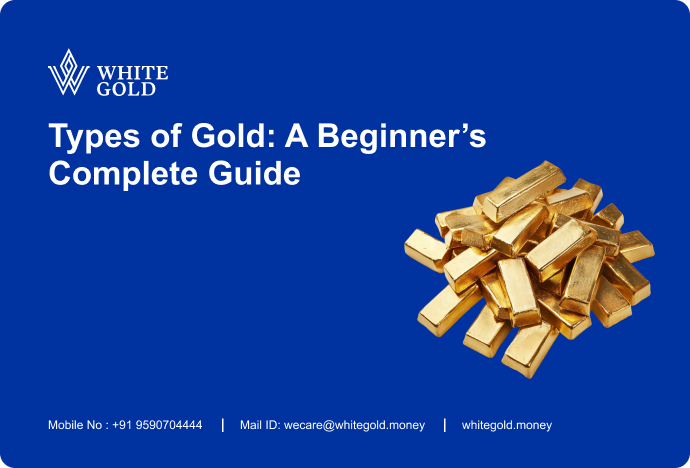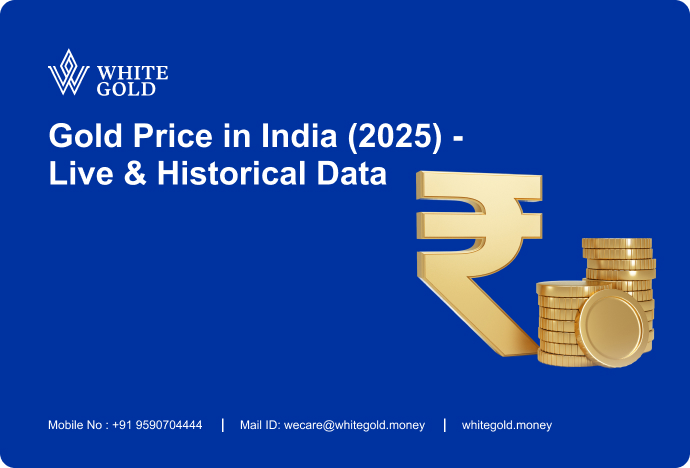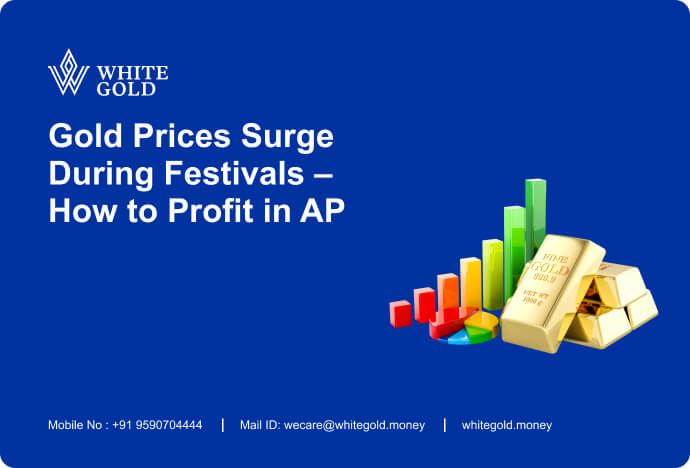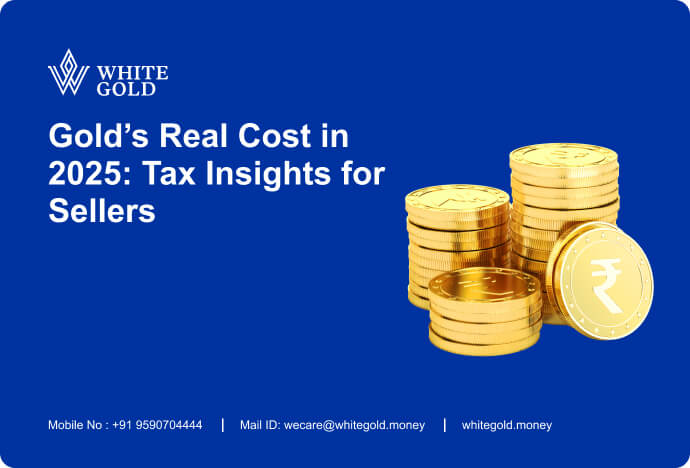How Inflation Affects Gold Investments

5min read
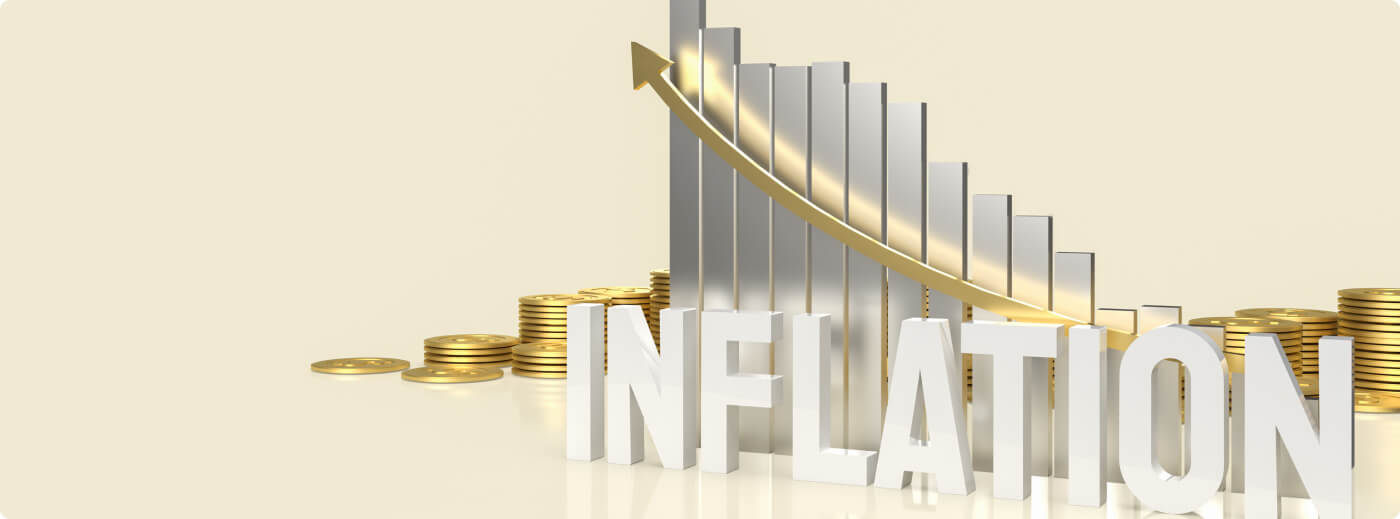
The investment guru Warren Buffett once quoted, – ‘Gold is a way of going long on fear.’ In a country like India, where gold holds both cultural and economic significance, this statement resonates deeply. Where gold buyers are increasing and sell gold practices are evolving.
As investors, we often encounter economic factors that influence our financial choices, and one of the most impactful forces is inflation.
Inflation often affects every facet of our financial lives, from increases in grocery prices to doubling daily fuel expenses, job loss and more. But how does inflation affect gold investments? In this blog, we explore the intricate relationship between inflation and gold investments in India.
1. Understanding Inflation
The progressive rise in the prices of goods and services is called inflation. As the cost of everyday items rises, the purchasing power of our money diminishes.
To put it into perspective, let’s consider recent statistics in India. Over the past few years, inflation has been like an unrelenting tide, affecting households across the nation. The Consumer Price Index (CPI), a key measure of inflation, has surged by an average of 4% to 6% annually. This might seem modest, but its cumulative impact over time can be substantial. Imagine your monthly grocery bill or fuel expenses increasing steadily—those rupees in your wallet don’t buy as much as they used to.
2. Gold as an Investment
Amidst this backdrop of economic uncertainty, it’s no surprise that gold shines as a preferred investment choice in India. For centuries, gold has been a symbol of wealth and a way to protect your savings. Even when times get tough, gold tends to hold its value, sometimes even doubling in value. So, when inflation makes everything more expensive, gold often becomes more valuable, attracting gold buyers for investment.
Gold investments come in various forms, each catering to different preferences and purposes. Many opt for gold jewellery, not just for adornment but as a form of savings. Others prefer gold coins or bars. And for those who don’t want to keep gold at home, they go for Gold Exchange Traded Funds (ETFs) that make investing in gold easy today.
3. Relationship Between Inflation and Gold
Historically, the correlation between inflation and gold prices has been striking. As inflation rates surge, so does the demand for gold. This phenomenon is rooted in gold’s status as a hedge against inflation, a tangible asset that preserves value when fiat currencies lose their purchasing power.
Based on data from the World Gold Council (WGC), gold has consistently outperformed inflation over the past 40 years, with an average annual outperformance of 3%. Recently, gold has shown exceptional performance as a hedge against inflation. As of September 2023, gold prices continue to remain high due to persistent inflationary pressures and uncertainty in global financial markets.
4. How Gold Prices Have Reacted To Inflationary Periods In India
Real-world examples or case studies can illustrate how gold prices have reacted to inflationary periods in India. For instance, in 2020, the COVID-19 pandemic caused a global economic slowdown, and the Indian economy was no exception. The Indian government implemented various measures to stimulate the economy, such as reducing interest rates and increasing liquidity. These measures led to an increase in inflation, which in turn led to an increase in gold prices. In August 2020, gold prices in India reached an all-time high of INR 56,191 per 10 grams.
As we delve deeper into the intricacies of gold investments in the context of inflation in India, it’s essential to explore the flip side of the coin – the risks and considerations associated with this metal.
5. Risks and Considerations
Price Volatility: Gold, though historically resilient, isn’t immune to price volatility. While it can serve as an effective hedge against inflation, its value can also fluctuate, presenting short-term challenges for investors. It’s crucial to be prepared for these fluctuations and not expect uninterrupted growth.
Relative Performance: While gold is often seen as a safe haven during inflationary periods, it may not always outperform other assets. Stocks, bonds, or real estate might offer more favourable returns in certain economic conditions. Diversifying your investment portfolio becomes crucial to balance these potential disparities.
Striking the Balance: Finding the right balance between gold and other investments is key. A well-diversified portfolio that includes gold can help spread risk and reduce vulnerability to inflation.
Summing it up
Understanding the dynamic relationship between inflation and gold investments is crucial for both gold buyers and those looking to sell gold. However, it’s crucial to recognize that timing is key when deciding to buy or sell gold. In times of rising inflation, gold’s intrinsic value tends to rise, making it a reliable hedge against eroding purchasing power.
As inflation’s impact persists, investors can leverage gold’s enduring allure to safeguard and potentially enhance their wealth. In conclusion, being knowledgeable about how inflation impacts gold investments can be highly beneficial for intelligent investment decisions.

